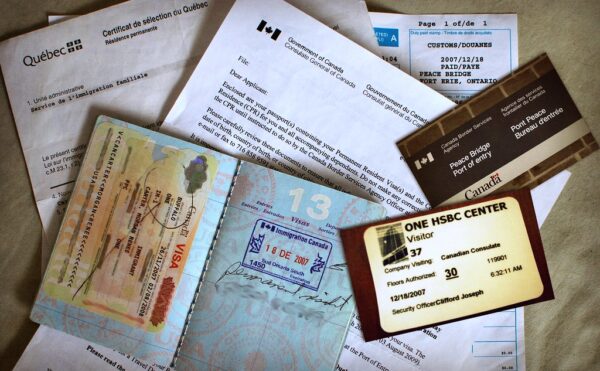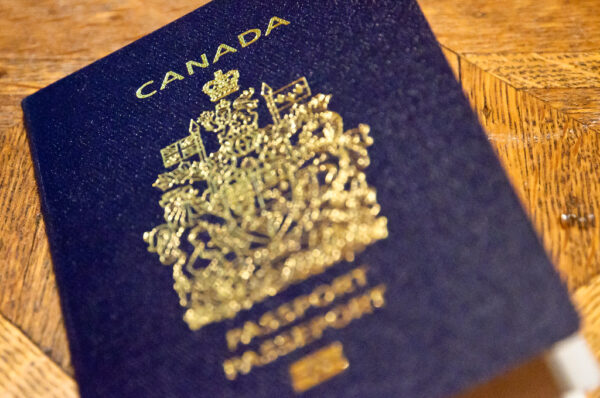051 8439995, 042 35911332

Once you become a permanent resident of Canada, it’s essential to spend three years living in the country before applying for Canadian citizenship.
Moreover, Canada boasts one of the most powerful passports globally, granting Canadians the benefit of traveling to numerous countries without the need for a visa.
The journey to Canadian citizenship follows a clearly outlined process designed to ensure applicants meet the necessary qualifications. Despite these explicit criteria, certain applications face rejection for various reasons.
This article will explore the ten most prevalent reasons for the denial of a Canadian citizenship application, illuminating the factors that may impede a successful transition to Canadian citizenship.
Things You Will Find In This Page
1. Inaccurate Completion of Application Forms
One of the primary reasons for the rejection of citizenship applications is the presence of incomplete or inaccurate information on the forms. The application process involves the meticulous completion of various detailed paperwork.
Ensuring that each form is accurately and thoroughly filled out is crucial. Incomplete or incorrect information may lead to misunderstandings and, consequently, result in rejection. Candidates should thoroughly review and double-check all the information before submitting their applications.
It’s important to note that claiming you entered information mistakenly is not an acceptable excuse. It holds significant importance, so make sure to input the information accurately in all the forms.
2. Adherence to Residency Criteria is Important
To qualify for Canadian citizenship, applicants must adhere to specific residency requirements, which involve accumulating 1,095 days (3 years) of physical presence in Canada within the last 5 years before signing the application.
Some candidates may underestimate the importance of meeting these residency requirements, assuming that they will fulfill the 3-year obligation by the time application processing begins. However, it is essential to note that the application can only be submitted or signed after completing the residency obligation. Submitting it before fulfilling this requirement will undoubtedly lead to rejection.
Maintaining accurate records of time spent in Canada is vital to ensure compliance with the residency criterion.
3. Language Proficiency Challenges
Proficiency in English or French is a prerequisite for Canadian citizenship. Individuals aged 18 to 54 must showcase adequate language skills by proving proficiency in one of the official languages.

Approved language assessments for English, like IELTS or CELPIP, and TEF for French, are commonly used.
An inability to provide acceptable language test results may lead to the rejection of the citizenship application.
4. Criminal Inadmissibility Concerns
Individuals with a criminal record, particularly for significant offenses, may encounter challenges in obtaining Canadian citizenship.
Criminal inadmissibility can result in denial, and applicants must provide police certifications for all countries where they have resided for a specified duration.
The severity of the offense may dictate a waiting period after completing the sentence before being eligible to apply for citizenship.
5. Complete Declaration of Family Members
Ensuring the accurate completion of the family information section is crucial for a successful application.
Failure to declare all family members, including dependent children and spouses, may result in rejection.
To streamline the assessment process and avoid complications, it is imperative to furnish precise and truthful information about family members.
6. Financial Responsibilities in Citizenship Application
Financial stability is a key consideration in the citizenship application process. Applicants are required to have filed their taxes for a minimum of 3 years within the 5 years preceding their citizenship application.
Failure to fulfill tax obligations or providing inaccurate financial information may lead to application rejection. Ensuring compliance with all tax regulations is crucial for a successful application.
7. Fraudulent Actions and Misrepresentation
Engaging in misrepresentation or fraudulent activities during the application process constitutes serious offenses leading to immediate rejection and potential legal consequences.
Falsifying information, using forged documents, or attempting to deceive immigration authorities can result in severe penalties, including a ban on applying for Canadian citizenship for a specified period.
Instances have been reported where Canadian permanent residents face citizenship application rejection just before taking the oath, often triggered by complaints from ex-spouses to the IRCC, alleging misrepresentation for various reasons.
8. Maintaining Permanent Resident Status
Applicants are required to uphold their permanent resident status during the citizenship application process. Automatic rejection of a citizenship application may occur if a person’s permanent resident status is revoked for any reason.

Candidates must comprehend the prerequisites for sustaining permanent resident status and promptly address any challenges that may arise.
9. Consideration of Previous Application Rejections
The rejection of a prior application for permanent residence or citizenship can influence subsequent applications.
Immigration authorities may scrutinize the reasons for the previous denial, and if those issues are not adequately addressed, the subsequent application may encounter a similar outcome. It is essential to comprehend and rectify the issues that led to the previous rejection for a successful reapplication.
10. Importance of Passing the Canada Citizenship Examination
As part of the citizenship application process, applicants are required to undergo a citizenship test to showcase their understanding of Canada.
This test evaluates an applicant’s knowledge of Canadian history, values, institutions, and symbols, as well as citizenship rights and obligations.
Failure to pass the citizenship test may lead to rejection. Success necessitates adequate preparation and a thorough understanding of the test material.
Final Words
Achieving Canadian citizenship is a significant milestone that reflects the inclusive principles defining the country.
Although the citizenship application process aims for transparency, candidates need to be diligent in meeting standards and providing accurate information. Awareness of the common rejection factors outlined in this article will help prospective citizens navigate the application process cautiously. By anticipating potential challenges and embracing the privileges and responsibilities of being part of our diverse and inclusive nation, applicants enhance their likelihood of a seamless transition to Canadian citizenship.
